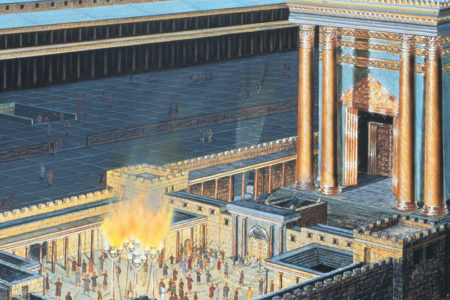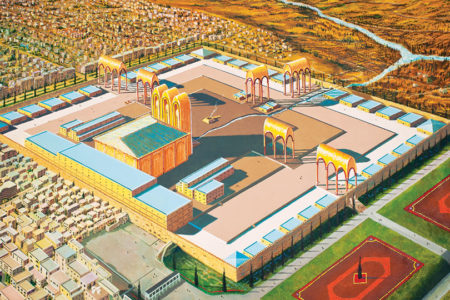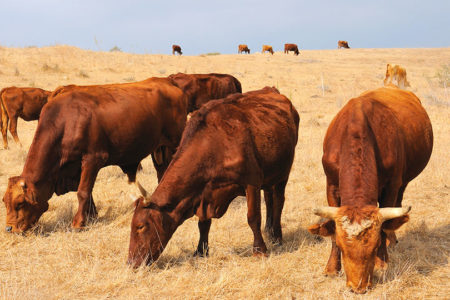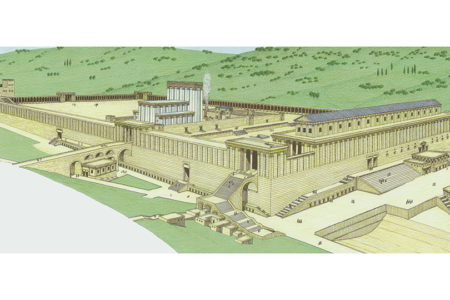Abortion and Man in the Image of God
Introduction
Abortion is one of the most controversial issues to confront the world during the last quarter of the 20th century. The very mention of the word generates strong emotions in many people, and the issue has polarized much of society into two very vocal, opposing camps. Pro-life people claim that abortion destroys a complete human life and therefore is morally wrong. Pro-abortionists reject that claim and assert that abortion simply destroys impersonal tissue and therefore is not morally wrong. Other people take an agnostic approach by declaring that they do not know which view is correct.
The conflicting assertions of the pro-life people and pro-abortionists indicate that the key to the abortion issue is the point at which the human fetus is a complete human being (that is, at what point is it a person possessing a human soul?).
Medical science has shed considerable light on this crucial question through its significant research concerning the development of the human fetus. However, in addition to this medical information, man should give attention to divine revelation. God created man, and the Scriptures teach that conception ultimately is controlled by God and is a gift of God (Gen. 16:2; 29:31; 30:22–23; Ruth 4:13). In addition, the Bible indicates that God superintends and controls the development of the human fetus within the womb (Ps. 139:13–16). God is the ultimate authority and source of knowledge concerning when the fetus is a complete human being possessing a human soul.
God has given divine revelation concerning this matter in the Scriptures. There are two factors in the Bible that bear significantly upon the issue of when the fetus is a complete human being. The first is the fact that man is created in the image of God. The second is the origin of the human soul.
Man in the Image of God
The Scriptures state six times that man was created in the image or likeness of God (Gen. 1:26, 27; 5:1; 96; 1 Cor. 11:7; Jas. 3:9). The fact that four of these six statements are in the first book of the Bible may indicate God’s desire to emphasize this truth at the very beginning to readers of the Scriptures, which would indicate that man’s creation in the image of God has considerable significance.
That man was created in the image of God does not mean that man is physically like God. Jesus declared that God is a Spirit (Jn. 4:24) and that a spirit does not have flesh and bones (Lk 24:39). Thus, it is not the nature of deity to have a physical body. Since God has no physical body, the image of God in man can not refer to the physical aspect of man’s being.
The fact that man is made in the image of God means that he was created to be a personal and moral being. The beings (Father, Son, and Holy Spirit) who constitute the Godhead are persons possessing intellect, emotions, and will. In addition, they are moral beings possessing a perfect sense of morality. When God created man, He created him a person possessing intellect, emotions, and will. He also created man a moral being. Man possesses a conscience (a sense of right and wrong) and is held responsible by both God and government for his conduct (Rom. 2:14–16; 13:1–7). Thus, it is in the personal and moral sense that man bears a resemblance to God.
God’s creation of man in His image is very significant for several reasons. First, it indicates that man is the highest form of God’s earthly creation. The Scriptures do not declare that animals or plants were created in the image of God. They make such a statement concerning man only (Gen. 1:26–27). The fact that man is created in the image of God, but animals and plants are not, indicates that man is unlike an animal or a plant. Human life is distinct from all other earthly life–forms. Man is a personal, moral being; animals and plants are not.
As a personal, moral being man is superior to all other forms of life in God’s earthly creation. In the personal realm, for example, man’s intellect is different from and far superior to that of all animal and plant life. Only man has the ability to use mathematics, compose music, paint pictures, design and build such things as airplanes, computers, telephones, space satellites, and televisions, and communicate ideas by arranging words in logical order in sentences and paragraphs. Man’s uniqueness in the moral realm is seen in the fact that man is the only earthly creature to whom God revealed moral standards and whom God has forbidden to lie, steal or use his sexuality outside the bonds of marriage.
Second, man’s creation in the image of God is significant because it provides the basis for man’s dominion over the earth. Genesis 1:26–27 indicates that it was in the context of God’s decision to create man in His image that He determined to give man ruling authority over all other living things and over the earth itself. God intended man to be His representative, administering His rule on His behalf over the earthly province of His universal kingdom. For man to know how God wanted him to administer that rule, man had to be a personal being with whom God could communicate intelligently. For man to administer that rule in the proper manner, he had to be a morally responsible being. The fact that God gave man dominion over all other living things on the basis of his being made in God’s image indicates again that God regarded man as distinct from and superior to all other earthly forms of life.
Third, man’s creation in the image of God is significant because it provides the basis for capital punishment of murderers of human life. Genesis 9:5–6 indicates several important things concerning capital punishment. First, it was God who instituted and ordained capital punishment for murderers of human life. God said,
And surely your blood of your lives will I require; at the hand of every beast will I require it, and at the hand of man; at the hand of every man’s brother will I require the life of man. Who so sheddeth man’s blood, by man shall his blood be shed; for in the image of God made he man (Gen. 9:5–6).
Second, the reason God gave for capital punishment of murderers of human life was, “in the image of God made he man” (v. 6). The person who murders another person is thereby striking the image of God in that other person. He is putting to death a personal, moral being. God regards this as a very serious offense.
Third, although God ordained capital punishment for animals and humans who murder a human being, He did not ordain it for human beings who kill an animal. God made this distinction because man is made in the image of God, but animals are not. The fact that God made such a distinction indicates again that He regards man as being different from and superior to all other earthly life-forms because man is made in His image. God was reiterating that man is not an animal and that human life is extremely valuable to Him.
Fourth, man’s creation in the image of God is significant because it provides the basis for human government. Government is one of the ways in which man exercises his God-given dominion over the earth, and the Scriptures teach that when government uses the sword to exercise capital punishment, it is functioning as the minister of God (Rom. 13:4). It can therefore be concluded that human government is also based on the fact that man is created in of God. Because man is a personal and moral being, government has the God-given task of protecting the lives and property of human beings from harm (Rom. 13:1–7).
Executive, legislative, and judicial governmental structures, political elections of officials, and decisions about how the resources of the earth are to be used are all governmental functions unique to the human realm on earth and demonstrate again that man is different from all other forms of earthly life. In spite of the fact that human government is far from perfect in its present form and function, the level of its organization and function around the world, in contrast to what exists in the animal realm, indicates once more that man is superior to animals. Again, this difference and superiority are based on man’s unique nature among earthly creatures as a creation in the image of God.
Fifth, man’s creation in the image of God is significant because it provides the basis for proper social conduct. James 3:9 indicates that since human beings are made in the similitude or image of God, one should be careful in one’s conduct in relationship to other people, even in what he says concerning them. By contrast, nowhere do the Scriptures declare that a person should be careful about what he says concerning animals or plants. Once again the implication is that man is different from and superior to all other living things because man was made in the image and likeness of God, but no other earthly life-form was made in His image.
Conclusion
Two important things should be noted from this study concerning man’s creation in the image of God. First, all five points indicate the same two truths: Man is different from and superior to the animal and plant kingdoms because man is made in the image of God, and animals and plants are not. Second, since the image of God in man does not refer to the physical aspect of man’s being but to his personal and moral being, and since the personal and moral aspects of man’s being are related to the realm of the human soul, it can be concluded that the image of God in man is related to the realm of the human soul. Therefore, God’s statement in Genesis 9:5–6 that it is wrong to murder a human being because God made man in His image affirms that it is wrong to murder a human being because of the presence of the human soul in that person.
In light of that fact, the real issue related to abortion is the point at which the human fetus has a human soul. To resolve this critical issue, one must study the origin of the human soul. The next article in this series will examine that issue.








